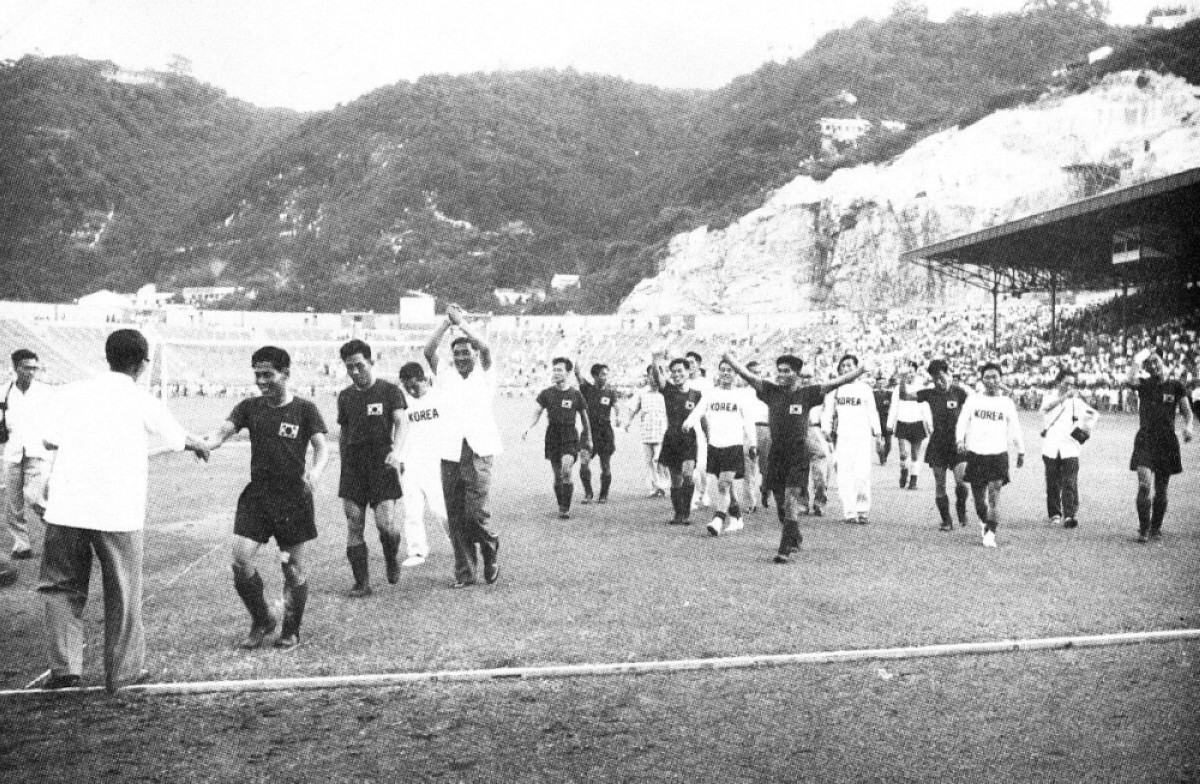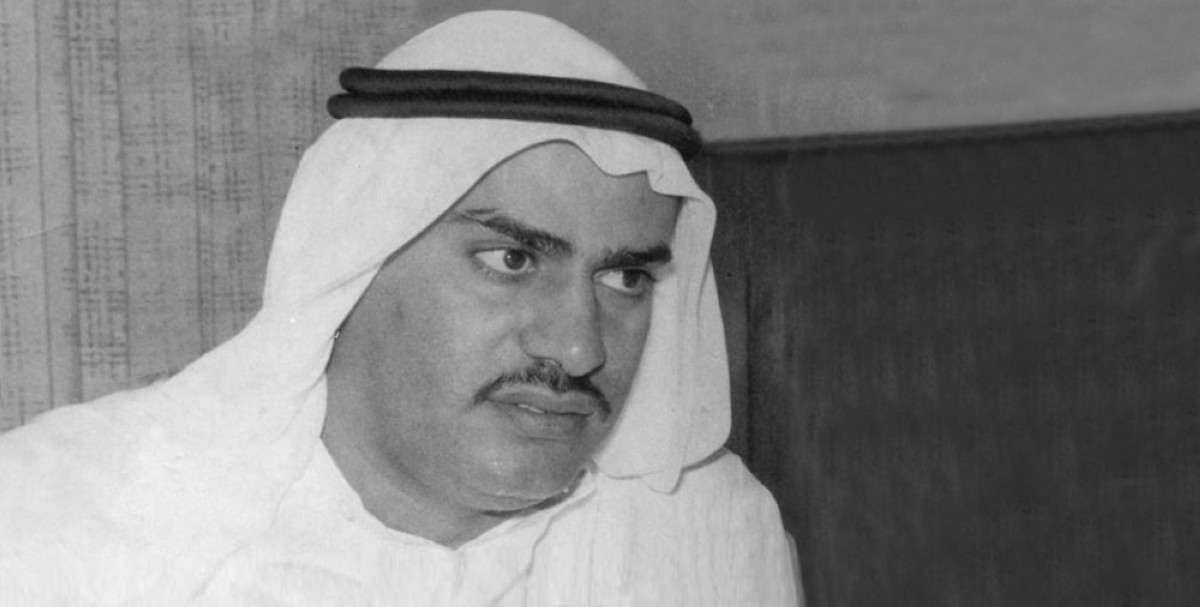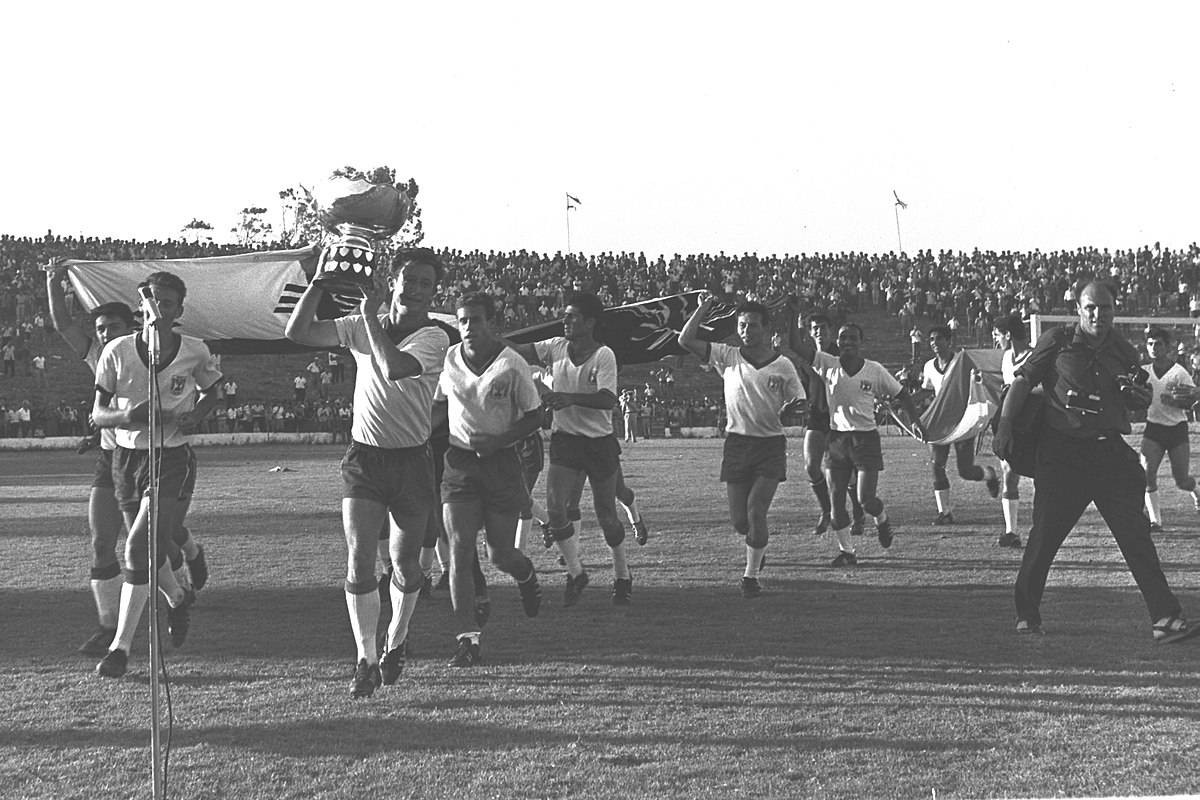Have you ever wondered why the Zionist entity’s football team plays in Europe instead of Asia, where it is geographically located on top of occupied Palestine? Not many people know that the team representing the Zionist entity had actually played in Asian competitions when the entity was first established, before it was kicked out following a charge by Arab countries led by none other than Kuwait.
After 1948, when the Zionists declared a state on occupied Palestine, their football team joined the Asian Football Confederation as a founding member in 1954, and later participated in the first AFC Asian Cup in 1956. In total, the Zionists’ team participated four times in the tournament, finishing in second place in 1956 and 1960, hosting and winning the cup in 1964 and standing third in 1968.
During that time, Arab teams refused to square off against the Zionist players, leading to a wide-scale boycott of the first four tournaments held under the AFC umbrella. The boycott and subsequent lack of competition also paved the way for the Zionist entity to achieve good results in the early years of the tournament.
A new crisis arose when the Zionist entity was set to host the 1972 AFC Asian Cup. Kuwait, which aspired to participate in the tournament after becoming an AFC member in 1964, decided that only boycotting was not enough, and that more action was needed. That’s when then Kuwait Football Association President Ahmad Al-Saadoun made his first move.




First on agenda
Before he was a lawmaker and multiple-time parliament speaker, Saadoun became president of the KFA in 1967. Expelling the Zionist entity from the AFC was first on his agenda, and for that he embarked on a mission around the continent to gather support.
Several Arab federations joined the AFC in the years that followed — Bahrain in 1969, Iraq, Jordan and Syria in 1970, Saudi Arabia and Qatar in 1972 and the UAE in 1974. In the years leading up to the 1972 AFC Asian Cup, the Saadoun-led Kuwaiti delegation visited officials at the newly established football federations in Arab countries, seeking a unified stance in support of a motion to expel the Zionists from Asian football.
That effort bore fruit when pressure from Arab states – and even some other non-Arab Asian countries that refused to recognize the Zionist entity — such as North Korea — forced the Zionists to withdraw from hosting and participating in the 1972 AFC Asian Cup. The tournament was then moved to Thailand, and coincidently, Kuwait qualified for the tournament for the first time.
Once and for all
But that was still not enough. Kuwait believed that Arabs and Zionists who were occupying Arab land could not coexist, even on the football field. Kuwait wanted to settle this matter once and for all. For that goal, Kuwait initiated a resolution at the AFC in 1974 to expel the Zionists, which was adopted by a vote of 17 to 13 with 6 abstentions. Kuwait’s efforts to gather support for the resolution in the years leading to its initiation are credited for making sure that the resolution passed.
The Zionists were left after their expulsion without a federation where they could compete at a high level or for a chance to qualify for the World Cup. To address this issue, FIFA allowed them to compete in competitions organized under the umbrella of the Oceania Football Confederation (OFC), the South American Football Confederation (CONMEBOL) and the Union of European Football Associations (UEFA). In 1992, UEFA admitted the Zionist entity’s football federation as an associate member, and then as a full member two years later.
The story of how Kuwait led the charge to expel the Zionists out of Asian football serves as a testament to the country’s unwavering support for Palestine, and its unchanged position against the occupation of their land. To this day, Kuwaiti athletes refuse to compete against players representing the Zionist entity, reflecting their country’s strong stand against normalization and rejection of any compromise that negates Palestinian rights.

